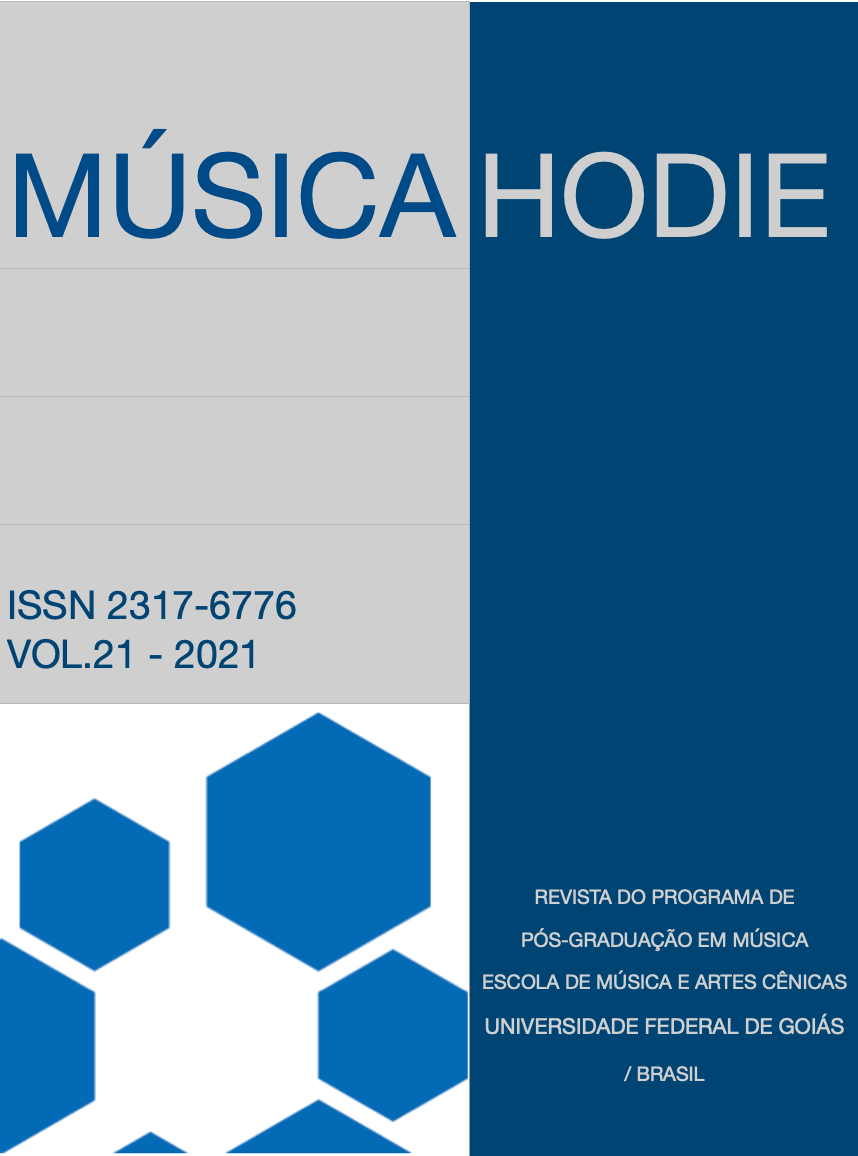Expressiveness and Sedation in Opera Music: Mathematical Perspectives
DOI:
https://doi.org/10.5216/mh.v21.69083Palabras clave:
cognitive abilities, expressive music, mathematics, opera, sedative musicResumen
The study purpose is to consider the influence of expressive and sedative opera works on the respondents’ mathematical abilities. The respondents were tested in order to identify the above characteristics. Two samples were obtained that contain information indirectly indicating a change in mathematical abilities of respondents listening to expressive and sedative opera works. There is a correlation between listening to music and an increase in the respondents’ mathematical abilities. The correlations between listening to sedative and expressive music and the respondents’ mathematical ability are different. Sedative music has a calming effect while expressive music cheers up the respondents.
Descargas
Descargas
Publicado
Versiones
- 2021-11-14 (2)
- 2021-10-10 (1)















